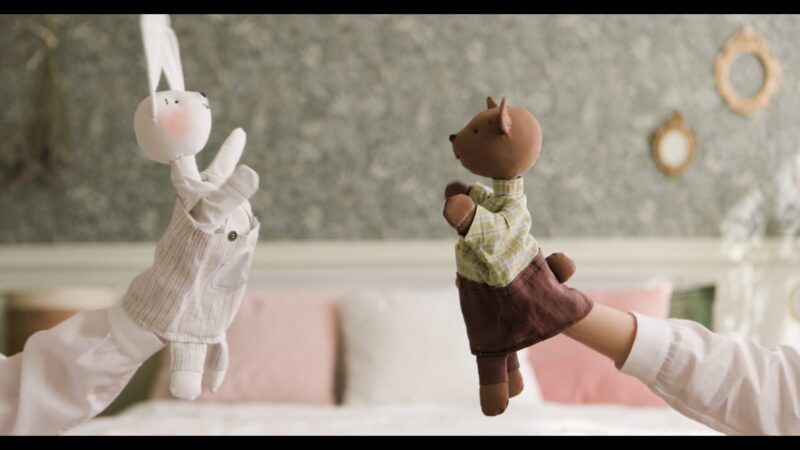What is “Social cognitive theory”?

Hello everyone.
In today’s video, we will introduce the so-called social cognitive theory in more depth, as well as its wide range of applications in real life and marketing.
I would like to be able to convey the knowledge I have gained through research and practice in an easy-to-understand manner, including concrete examples.
KANA-san, thank you very much for your support.

Hello, Yuya.
It’s hard to understand the theory just by looking at the name, but today’s lecture is rich in content, and I’ve heard that you’ll be able to introduce specific examples and practical applications.
I look forward to hearing from you in a very interesting and simple to understand manner.
Background and Core Concepts


First, let’s explain the basics of social cognitive theory.
This theory was proposed by Dr. Albert Bandura, and is based on the idea that the process by which people learn is not simply a passive process of receiving information, but is greatly influenced by their surrounding behavior and environment, as well as their own internal state and expectations.
Specifically, by seeing and hearing the actions of others, we learn what actions are desirable or should be avoided.

In other words, our behavior is not just imitation, but is determined by the environment, the reactions of others, and our own internal beliefs.
For example, you can drive home the idea of this theory by remembering how your behavior at school or work, or how your interactions with friends influence your own behavior.

That’s right.
Within this theory, the concepts of “observational learning", “modeling,” and “self-efficacy” play particularly important roles.
Observational learning refers to the process of learning from observing the behavior of others and imitating that behavior yourself.
Modeling is a specific example of imitation, and self-efficacy is the idea that the confidence that “I can do it too” becomes the driving force for trying new things.
Together, these factors shape and change our behavior.
Experimental Evidence and Research Examples


Considering specific examples, what kind of experiments and research support this theory?
I think it would be easier to understand if there were more real-life examples.

A typical example is the “Bobo Doll Experiment.”
In this experiment, children were shown aggressive behavior by adults and then observed whether the children themselves exhibited the same aggressive behavior.
The results showed that children imitated adult behavior very strongly and their behavior changed depending on the environment and situation, demonstrating the existence of observational learning.
Furthermore, in research on self-efficacy, it has been observed that there are many cases in which, for example, through the accumulation of successful experiences during school grades or sports training, children develop confidence in themselves, leading them to take on further challenges and aim for higher heights.
In fact, many experimental studies have shown that repeating good feedback makes you want to try more on your own.

If experimental results show us concretely what we see, how we feel, and how this affects our actions, this will lead to greater awareness in our daily lives.
For example, seeing someone else’s success often inspires you to try it yourself.

That’s exactly right.
This theory also applies to today’s digital environment.
Online, many people share their experiences, opinions, and real-world usage examples on platforms such as social media, review sites, blogs, and YouTube.
This spreads the success and failure stories of others, which directly influences consumer purchasing behavior and evaluation criteria.
For example, if you receive many positive reviews about a product, your expectations will increase and you will be motivated to try it.
Applications in Marketing


I would like to see specific examples of how such research and experiments are utilized in actual marketing strategies.
Please tell us more about your company’s initiatives.

In the world of marketing, elements of social cognitive theory are applied to many strategies.
First of all, companies use trusted influencers and celebrities in their ads and campaigns.
Their actions and experiences inspire many consumers to want to emulate them.
In fact, it is very common for people to see someone famous using a product and be inspired to purchase the same product.
We also utilize a system in which actual users share their experiences on SNS, blogs, videos, etc.
This spreads real information based on real experiences, which consumers use as reference when deciding on their own actions.

I myself am often influenced by online reviews and experiences from friends.
In particular, feedback from people who have actually used the product is very persuasive and can be a big factor in deciding whether or not it’s right for you.

That’s right.
Additionally, companies are leveraging brand stories to strengthen emotional connections with consumers.
When a brand carefully communicates its history, philosophy, and stories with customers, it creates a feeling that “this brand resonates with me,” leading to long-term loyalty.
This also has a psychological effect similar to self-efficacy, and is a factor that makes consumers feel that they can use this brand with confidence.
This kind of storytelling goes beyond simply providing product information and can promote an empathetic experience where companies and consumers grow together.
In-Depth Discussion and Exploration


In this way, modern marketing is more about two-way communication, where consumers themselves participate in the process and actually share their experiences, rather than simply selling products.
I feel that the idea that consumers and companies foster trust and confidence while influencing each other is both very familiar and profound.

That’s exactly right.
In fact, consumers are no longer passive beings, but are transmitting information themselves, listening to the opinions of others, and choosing their own actions.
This entire process is an example of “observational learning” based on social cognitive theory.
In other words, people observe each other as role models and update their own behavior accordingly.
This is a very important suggestion for companies, and is directly linked to building trusting relationships with consumers and strengthening brand strategies.

That’s a very convincing explanation.
The fact that you can actually notice changes in your behavior in real life and online is proof that the theory is rooted in reality.
I feel that these relationships between people will become more and more important in future marketing.
Summary


Now, let’s reorganize today’s content. Social cognitive theory is a very simple and powerful idea that people observe the behavior of those around them and use this as a reference to decide their own actions.
As the Bobo doll experiment and research on self-efficacy demonstrate, this process is an important element of learning and growth in real life, as well as social media, word of mouth, and marketing strategies in today’s digital environment.
The actions and actual experiences of trustworthy people influence many consumers, and a strong relationship of trust is built between companies and consumers.

Through today’s talk, I was able to understand very clearly how the experiences, word of mouth, and connections between companies and consumers that we see in our daily lives influence people’s actions and thoughts.
I believe that the specific examples and practical applications that you have talked about will provide practical hints that will be useful in your future life and work.

KANA-san. I hope that today’s content will be useful to you, and that it will give you an opportunity to reconsider the psychology behind your own actions and decisions.
I hope we can continue to learn together in the future.
Thank you very much for your time today.
Until next time, thank you for reading.

Thank you very much.
I look forward to seeing you again next time.
This article uses material from the Wikipedia article “Social cognitive theory” which is released under the Creative Commons Attribution-Share-Alike License 4.0.
Standing Portrait: Mana Kanaka

